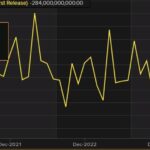The second dose of the vaccine reduced the incidence of heart attacks, strokes, and other conditions.
Researchers from the Universities of Cambridge, Bristol and Edinburgh suggested that COVID-19 vaccination may reduce the incidence of arterial thrombosis.
This study Nature Communicationswas supported by the British Heart Foundation (BHF) Data Science Centre at Health Data Research UK.
The researchers analysed anonymised health records of 46 million adults provided by NHS England from general practitioner consultation records, hospital admission records and death records in England between December 2020 and January 2022.
The research team compared the incidence of cardiovascular disease (CVD) after COVID-19 vaccination with the incidence before vaccination or without vaccination during the first two years of the vaccination program.
CVD affects around seven million people in the UK and is a significant cause of disability and death.
Overall, the incidence of arterial thrombosis such as heart attacks and strokes, which affect a combined 200,000 people in the UK each year, fell by up to 10% 13 to 24 weeks after the first dose of a COVID-19 vaccine, the study found. After the second dose, rates fell by 27% after the AstraZeneca jab and up to 20% after the Pfizer/BioNTech jab.
Furthermore, the incidence of venous thrombosis, including pulmonary embolism and deep vein thrombosis of the lower extremities, showed a similar pattern.
The researchers believe that the lower rates of heart attack and stroke in vaccinated people compared to unvaccinated people is due to an increase in CVD after COVID-19 infection, suggesting that “the benefits of a second and booster dose outweigh the very rare cardiovascular complications”, explained Professor William Whiteley, deputy director of the BHF Data Science Centre and professor of neurology and epidemiology at the University of Edinburgh.
Co-lead author Dr Samantha Yip, research fellow in the School of Public Health and Primary Care at the University of Cambridge, said the findings “add to a growing body of evidence on the safety of the COVID-19 vaccination programme, which has protected against severe COVID-19 and saved millions of lives around the world.”







